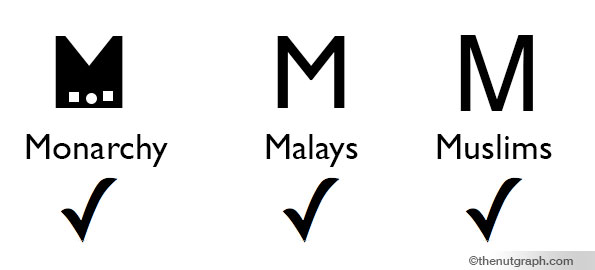
THE three proposed “unity bills” drafted by the National Unity Consultative Council (NUCC) to replace the Sedition Act 1948 have recently come under attack. Former Prime Minister Tun Dr Mahathir Mohamad, former Chief Justice Tun Abdul Hamid Mohamad, and a group of Malay and Muslim pressure groups have all expressed dismay at the draft bills.
The bills consist of the National Harmony and Reconciliation Bill, the National Harmony and Reconciliation Commission Bill and the Racial and Religious Hate Crimes Bill. According to its detractors, passing these bills and repealing the Sedition Act would cause chaos, be against Islam, and challenge the position of Malay Malaysians in the country.
Are these claims accurate? What do these three bills do and why do we need them in the first place?
Replaces the Sedition Act
The Racial and Religious Hate Crimes Bill (Hate Crimes Bill) will repeal the Sedition Act 1948 — an Act as wide as it is old. The Sedition Act is a pre-independence law introduced by the British during the communist insurgency and contains many provisions unsuited to a genuine democracy in the 21st century. Instead of being used for countering insurgencies, it has instead gained notoriety under the Barisan Nasional as a tool to silence political critics.
Under the Sedition Act, it is a crime to excite disaffection against the government, or the administration of justice, or even just to raise “discontent or disaffection” amongst the inhabitants of Malaysia. It contains broad offences such as promoting “feelings of ill will and hostility between different races or classes”. It also requires receivers of seditious publications to surrender such publications to police officers, or risk charges for possessing such material.
The repeal of this Act is certainly desirable given its antiquated nature and perceived abuse in the selective prosecution of government critics.
The Hate Crimes Bill does maintain one offence carried over from the Sedition Act — it will still be criminal to engage in conduct intended to bring into hatred or contempt any ruler in Malaysia.
Introduces hate speech crimes
The Hate Crimes Bill also makes it a crime to engage in conduct intended to threaten or incite physical harm towards others on the basis of their race or their religious belief.
This provision is in line with international human rights standards and constitutes a legitimate restriction of freedom of speech. Article 20 of the International Covenant on Civil and Political Rights obliges states to criminalise the advocacy of “national, racial or religious hatred that constitutes incitement to discrimination, hostility or violence.”
This is also significantly narrower than what is covered under the Sedition Act and is commendable. The Sedition Act’s vague and broad terms allow its use to suppress expression that is critical of the government while allowing criminal expression that threatens violence against others to go unchecked.
Establishes a National Harmony and Reconciliation Commission
The National Harmony and Reconciliation Commission Bill establishes a commission that will be tasked with promoting unity through research, training, education and making public statements.

Significantly, the commission will have the power to investigate complaints of unfair discrimination on the grounds of religion, race, descent, place of birth, gender, pregnancy, sexual orientation and identity, or disability. It has the power to mediate between parties or convene an Unfair Discrimination Tribunal. This tribunal can summon witnesses and issue orders to compel parties to act or prohibit them from continuing any unfair discrimination. Orders by the tribunal will be subject to judicial review in court.
The setting up of quasi-judicial tribunals is not new in Malaysia. For example, Malaysians can refer their housing claims to the Housing Tribunal, or complaints about their goods or services received to the Consumer Claims Tribunal. These tribunals also have the power to issue awards.
Anti-Monarchy/Malay/Muslim?
So are the bills detrimental to the monarchy, the Malays or the Muslims?
As far as I can see, the bills do not make any changes whatsoever to the constitutional position of the rulers, the Malays and Islam. In fact, the Hate Crimes Bill continues to protect the Malay rulers from conduct that causes hatred or contempt against them.
The bills also do not remove any privileges granted to Malay Malaysians. The National Harmony and Reconciliation Bill expressly states that nothing in the bill derogates or takes away anything from the Constitution’s Article 153. This article protects the special position of Malay Malaysians and the natives of Sabah and Sarawak, as well as the legitimate interests of other communities. In any event, the constitution is the supreme law of the land. If the bills conflict with any part of the constitution, the higher law will prevail.
The bills also do not challenge Islam’s place as the religion of the federation, as set out in Article 3 of the Constitution. Although the commission has powers to review cases of discrimination, this only applies to unfair discrimination. Islam’s place in ceremonial and official affairs as befitting the religion of the federation, and the application of syariah as set out in the constitution, would not constitute unfair discrimination under the new bills.
The only actions that would fall under the commission’s purview would be discriminatory practices that are unfair and go beyond the constitutional protections afforded to Malays or natives of Sabah and Sarawak.
It seems appropriate that such practices should be open to examination and censure by a quasi-judicial government-appointed body. Islam being the religion of the federation does not mean that Malaysians may therefore freely discriminate against those of other religious beliefs and threaten violence against them.
Similarly, Article 153 protects the special position of Malays and natives of Sabah or Sarawak through specific measures such as the setting of quotas in the public service, education, and in the provision of licences for business. Should the government take measures that extend beyond what Article 153 has provided for, that should also be open to discussion and review.
The commission will also be a place to examine discrimination against Malays and Muslims. There is evidence, for instance, that private employers discriminate against Malay Malaysians when hiring new employees. Such practices will also be open to challenge under the new commission.

A safe space
All in all, the unity bills appear to be a good faith effort by a government-appointed body to produce laws to replace the Sedition Act. The bills meet international human rights standards and respect local requirements, such as protecting the special position of Malays and natives of Sabah and Sarawak.
For too long, issues of racial and religious discrimination have been deemed too sensitive for discussion. But after more than 50 years as a nation, it is time to talk about such issues openly, rather than leave them to fester.
These draft NUCC bills appear to provide a safe space for discussing and adjudicating such issues. They provide Malaysians with an opportunity to go beyond name-calling, finger-pointing and wild accusations, and to actually examine cases of discrimination and form principles on when it is fair, and when it is not. My hope is that our leaders will be brave enough to push for the adoption of these new laws as they have been drafted, and not be cowed by those who make unfounded assertions about the NUCC’s efforts. ![]()
Ding Jo-Ann is thankful for The Nut Graph and how it has provided a safe space for her to discuss issues of public interest and national importance.


Pak Su says
Look at how Umno BN has polluted the mindset of the majority of Malaysians…. back-to-back, always about Malays, Muslims, ketuanan, this Malay sensitivity, that Muslim sensitivity. etc. Not healthy.